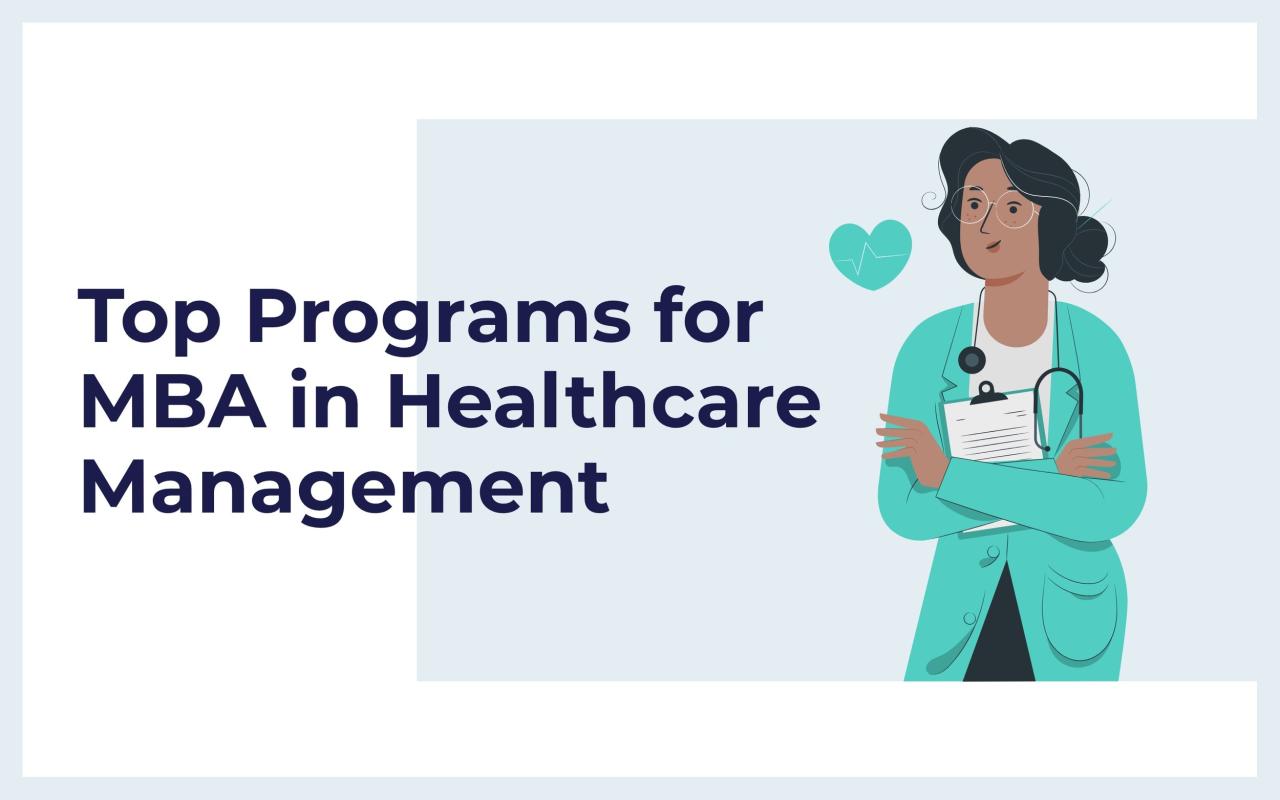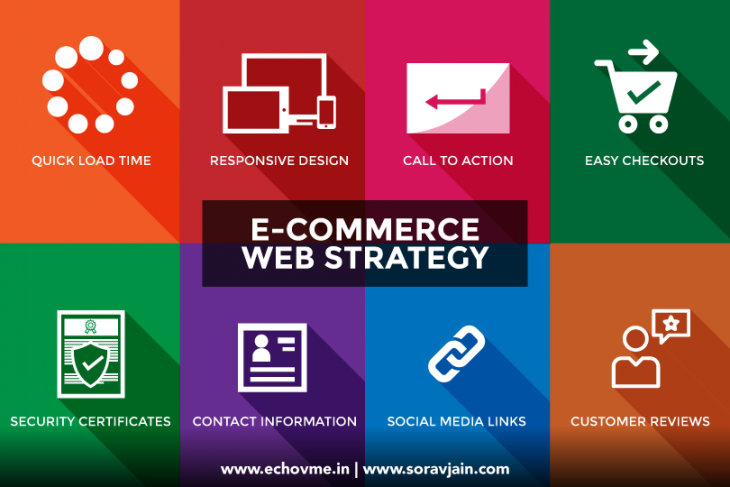MBA in Healthcare Informatics blends business acumen with technological expertise, creating a powerful combination for professionals navigating the complex world of healthcare data. This program equips graduates with the skills to manage healthcare systems, analyze patient data, and implement innovative solutions to improve efficiency and patient care. We’ll explore the curriculum, career paths, and the crucial role of data analytics in this rapidly evolving field.
From understanding the intricacies of Electronic Health Records (EHRs) to mastering data visualization and predictive modeling, an MBA in Healthcare Informatics provides a comprehensive skillset. This isn’t just about crunching numbers; it’s about using data to drive better decision-making, enhance patient outcomes, and ultimately, transform healthcare delivery. We’ll delve into the ethical considerations of handling sensitive patient information, the impact of emerging technologies like AI and blockchain, and the lucrative job market awaiting those who master this interdisciplinary field.
Program Overview

An MBA in Healthcare Informatics is a specialized graduate degree designed to equip professionals with the business acumen and technical expertise needed to navigate the increasingly complex world of healthcare data. This program blends traditional MBA coursework with focused studies in health information technology, data analytics, and healthcare management. Graduates are prepared for leadership roles requiring both a deep understanding of healthcare operations and the ability to leverage technology for improved efficiency and patient care.
Typical Curriculum
The curriculum of an MBA in Healthcare Informatics typically includes a core set of MBA courses covering finance, accounting, marketing, and strategic management. These are supplemented by specialized courses in healthcare informatics, such as health data analytics, database management, electronic health records (EHR) systems, health information security, and telehealth technologies. Students often engage in case studies and projects that apply these concepts to real-world healthcare scenarios, developing practical skills in data interpretation, system implementation, and strategic decision-making within a healthcare context.
Many programs also include a capstone project or internship to provide hands-on experience.
Career Paths for Graduates
Graduates with an MBA in Healthcare Informatics are highly sought after in a variety of roles. Potential career paths include healthcare management positions like Chief Information Officer (CIO), Director of Health Information Management, or Director of Clinical Informatics. They can also find roles in consulting, working with healthcare organizations to improve their IT infrastructure and data management strategies.
Data analytics roles are also prevalent, with graduates analyzing patient data to identify trends, improve outcomes, and support evidence-based decision-making. Finally, many pursue careers in health information technology companies, contributing to the development and implementation of new healthcare technologies.
MBA in Healthcare Informatics vs. Master’s in Health Informatics
While both an MBA in Healthcare Informatics and a Master’s in Health Informatics (MHI) focus on healthcare data and technology, they differ significantly in their emphasis. An MHI typically provides a more technical focus, delving deeper into the intricacies of health information systems, data analysis techniques, and clinical applications. An MBA in Healthcare Informatics, on the other hand, integrates this technical knowledge with a strong foundation in business administration.
The MBA program emphasizes leadership, strategic planning, financial management, and the broader business aspects of healthcare. Therefore, an MHI might be a better fit for individuals seeking a purely technical role, while an MBA in Healthcare Informatics is ideal for those aspiring to leadership positions requiring both technical proficiency and business acumen.
Admission Requirements for Prominent Programs
Choosing the right program depends on your specific career goals and background. Here’s a comparison of admission requirements from several leading universities (note that requirements can change, so always check the specific university website):
| Program | GMAT/GRE | Undergraduate Degree | Work Experience |
|---|---|---|---|
| University A | Recommended | Bachelor’s Degree | 2+ years preferred |
| University B | Required | Bachelor’s Degree in related field preferred | 3+ years preferred |
| University C | Optional | Bachelor’s Degree | 1+ years preferred |
| University D | Recommended | Bachelor’s Degree in a quantitative field preferred | 2-3 years preferred |
Healthcare Informatics Skills & Technologies

This section delves into the essential technological skills and data-handling expertise required for success in the field of healthcare informatics. We’ll explore the critical role of data analytics, the ethical responsibilities involved, and provide examples of current healthcare IT systems and their applications. Mastering these areas is paramount for effective and responsible contributions to the evolving healthcare landscape.
The healthcare informatics field is rapidly evolving, driven by technological advancements and the increasing volume of patient data. A strong foundation in various technologies and analytical skills is crucial for professionals seeking to thrive in this dynamic environment. This section will highlight key technological skills, the importance of data analytics, ethical considerations, and examples of widely used healthcare IT systems.
Key Technological Skills
Professionals in healthcare informatics need a diverse skillset encompassing both technical proficiency and analytical capabilities. A strong understanding of database management systems (DBMS), programming languages, and data visualization tools is essential for managing and interpreting the vast quantities of data generated within healthcare settings. Furthermore, familiarity with cloud computing platforms and cybersecurity best practices is crucial for ensuring data integrity and patient privacy.
These skills enable professionals to effectively collect, analyze, and present healthcare data to support informed decision-making.
The Importance of Data Analytics in Healthcare Informatics
Data analytics plays a pivotal role in healthcare informatics, enabling the extraction of valuable insights from complex datasets. By applying statistical methods and machine learning algorithms, healthcare professionals can identify trends, predict outcomes, and improve the efficiency and effectiveness of healthcare delivery. For instance, predictive analytics can help hospitals anticipate surges in patient volume, allowing for better resource allocation and improved patient care.
Similarly, analyzing patient data can identify risk factors for specific diseases, leading to proactive interventions and improved patient outcomes. The ability to interpret and communicate these analytical findings effectively is critical for influencing healthcare policy and practice.
Ethical Considerations Related to Handling Patient Data
The handling of patient data requires strict adherence to ethical guidelines and legal regulations. Protecting patient privacy and confidentiality is paramount, and professionals must be well-versed in regulations such as HIPAA (Health Insurance Portability and Accountability Act) in the United States. Data security measures, including encryption and access control, are essential to prevent unauthorized access and data breaches.
Furthermore, ethical considerations extend to data integrity, ensuring the accuracy and reliability of the information used for decision-making. The responsible use of patient data is fundamental to maintaining trust and upholding the highest standards of professional conduct.
Examples of Current Healthcare IT Systems and Their Applications
Several healthcare IT systems are widely used, each playing a distinct role in improving healthcare delivery. Understanding their applications is key to effective utilization within the healthcare informatics field.
- Electronic Health Records (EHRs): EHRs are digital versions of patients’ medical records, providing a centralized repository of information accessible to healthcare providers. They improve care coordination, reduce medical errors, and enhance patient engagement.
- Hospital Information Systems (HIS): HIS encompasses various systems used within hospitals, including patient administration systems, laboratory information systems, and radiology information systems. These systems integrate various aspects of hospital operations, improving efficiency and workflow.
- Picture Archiving and Communication Systems (PACS): PACS are used to store, retrieve, and view medical images such as X-rays and CT scans. They enable efficient image sharing and collaboration among healthcare professionals.
- Clinical Decision Support Systems (CDSS): CDSSs provide healthcare professionals with evidence-based recommendations during patient care. These systems can alert providers to potential drug interactions or suggest appropriate treatment options based on patient data.
Industry Trends and Job Market
The healthcare informatics field is experiencing explosive growth, driven by the increasing digitization of healthcare and the ever-growing volume of patient data. This creates a robust job market with diverse opportunities for skilled professionals. Understanding current trends and future projections is crucial for anyone considering a career in this dynamic sector.The demand for healthcare informatics professionals is projected to continue its upward trajectory for the foreseeable future.
The Bureau of Labor Statistics, while not having a specific category for “Healthcare Informatics,” projects significant growth in related occupations like medical records and health information technicians, and data scientists. These roles are intrinsically linked to the core competencies of a healthcare informatics professional, suggesting similar growth rates. Specific numbers vary depending on the source and the precise job title, but consistent predictions point towards a double-digit percentage increase in job openings over the next decade.
This growth is fueled by factors like the aging population, the expansion of electronic health records (EHRs), and the increasing need for data analysis to improve healthcare efficiency and quality.
Impact of Emerging Technologies
Artificial intelligence (AI) and blockchain technology are revolutionizing healthcare informatics. AI is being integrated into diagnostic tools, predictive analytics for patient risk stratification, and personalized medicine. For example, AI-powered systems can analyze medical images with greater speed and accuracy than human radiologists, leading to faster diagnoses and improved patient outcomes. Blockchain technology, with its secure and transparent data management capabilities, holds immense potential for improving data interoperability and patient data privacy.
Imagine a future where patient medical records are securely stored and shared across different healthcare providers using blockchain, reducing administrative burdens and enhancing data security. The integration of these technologies demands a workforce skilled in their implementation, maintenance, and ethical considerations.
Hypothetical Career Progression
A typical career path for a healthcare informatics professional might begin with an entry-level position as a data analyst or informatics specialist. This role focuses on data cleaning, analysis, and reporting. With experience and further training, the professional could advance to a senior analyst position, taking on more complex projects and mentoring junior colleagues. Further career progression might involve moving into a management role, such as a director of health informatics, overseeing teams and projects related to EHR implementation, data governance, or system integration.
Alternatively, the professional could specialize in a specific area, such as AI in healthcare or cybersecurity in healthcare, becoming a subject matter expert and potentially pursuing research opportunities. This career path showcases the potential for significant growth and specialization within the field.
Challenges and Opportunities in Healthcare Informatics
The healthcare informatics sector presents both significant challenges and exciting opportunities. It’s a field where constant learning and adaptation are key.
- Challenge: Data security and privacy concerns are paramount. Protecting sensitive patient data from breaches and misuse requires robust security measures and adherence to strict regulations like HIPAA.
- Challenge: Interoperability of different healthcare systems remains a major hurdle. Seamless data exchange between various systems is crucial for efficient care, but achieving this requires significant technological and standardization efforts.
- Challenge: The high cost of implementing and maintaining new technologies can be a barrier for smaller healthcare organizations.
- Opportunity: The growing demand for data-driven decision-making creates numerous opportunities for professionals skilled in data analytics and visualization.
- Opportunity: The development and implementation of AI and machine learning tools offer exciting possibilities for improving healthcare efficiency and patient outcomes.
- Opportunity: The increasing focus on telehealth and remote patient monitoring creates new roles and responsibilities for healthcare informatics professionals in designing and managing these systems.
Program Costs and ROI: MBA In Healthcare Informatics
Investing in an MBA in Healthcare Informatics is a significant financial commitment, but the potential return on investment (ROI) can be substantial. Understanding the costs involved and the potential earning power of graduates is crucial for making an informed decision. This section will break down the typical costs associated with the program and explore how to assess the potential ROI compared to other MBA specializations.
The total cost of an MBA in Healthcare Informatics varies significantly depending on the institution, program length, and location. Tuition fees can range from $50,000 to well over $100,000 for a two-year program. Additional expenses include books, supplies, and living costs, which can add another $10,000 to $30,000 or more, depending on your lifestyle and location. Some programs may offer financial aid or scholarships, potentially reducing the overall cost.
It’s essential to research the specific costs of your target programs carefully.
Tuition and Fees
Tuition fees represent the most significant portion of the program cost. Prestigious universities with strong reputations in healthcare informatics often command higher tuition rates. However, less expensive but equally reputable programs are available at public universities or smaller, specialized institutions. It is advisable to compare program costs across several institutions and factor in additional fees such as application fees, technology fees, and graduation fees.
These hidden costs can add up quickly.
Return on Investment (ROI) Compared to Other MBA Specializations
While the upfront investment in an MBA in Healthcare Informatics is considerable, the potential ROI often surpasses that of other MBA specializations. The high demand for skilled healthcare informatics professionals translates to competitive salaries and rapid career advancement opportunities. For example, a recent study showed that graduates with an MBA in Healthcare Informatics experienced a median salary increase of 40% within three years of graduation, significantly higher than the average increase for MBA graduates in other fields.
This accelerated growth is fueled by the ongoing digital transformation within the healthcare industry.
Calculating Potential Earning Potential, MBA in healthcare informatics
Estimating potential earning potential requires considering several factors. Firstly, the base salary for entry-level positions in healthcare informatics varies depending on location and employer. Secondly, experience significantly impacts earning potential. With each year of experience, salaries generally increase, often at a faster rate than in other industries. Finally, specialized skills and certifications further enhance earning prospects.
A realistic approach involves researching average salaries for entry-level and experienced positions in your target geographic area and considering potential salary growth based on industry trends.
Potential Salary Ranges
The table below provides estimated salary ranges for healthcare informatics professionals based on experience level and location. These are averages and individual salaries may vary based on skills, employer, and other factors. These figures are based on data from reputable sources such as the Bureau of Labor Statistics and industry salary surveys.
| Experience Level | Location (Example) | Low End (USD) | High End (USD) |
|---|---|---|---|
| Entry-Level (0-2 years) | Small City, Midwest | 60,000 | 80,000 |
| Entry-Level (0-2 years) | Major City, West Coast | 75,000 | 100,000 |
| Mid-Level (3-7 years) | Small City, Midwest | 90,000 | 120,000 |
| Mid-Level (3-7 years) | Major City, West Coast | 110,000 | 150,000 |
Admission Process and Application Tips
Getting into a competitive MBA in Healthcare Informatics program requires a well-structured approach. The application process itself can seem daunting, but with careful planning and execution, you can significantly improve your chances of acceptance. This section Artikels the typical process and provides valuable tips to strengthen your application.The typical application process involves several key steps: submitting an online application, providing transcripts, taking standardized tests like the GMAT or GRE (requirements vary by program), securing letters of recommendation, and completing a personal essay.
Many programs also require an interview. The specific requirements and deadlines will vary depending on the university and program, so meticulously check the program’s website for detailed instructions.
Application Essay and Resume Importance
A compelling application essay and a strong resume are crucial for showcasing your qualifications and potential. Your essay is your opportunity to tell your story, highlighting your experiences, motivations, and aspirations within the field of healthcare informatics. It should demonstrate your understanding of the industry and articulate why you’re a suitable candidate for the program. Similarly, your resume should concisely and effectively present your professional accomplishments and skills, tailoring it specifically to the requirements of the MBA program.
Generic resumes won’t cut it; show how your experiences directly relate to healthcare informatics and business acumen. Think of the essay as your narrative and the resume as your qualifications summary.
Interview Preparation Strategies
The interview stage is your chance to connect with the admissions committee on a personal level and further demonstrate your suitability for the program. Thorough preparation is essential. This includes researching the program, faculty, and the university. Practice answering common interview questions, such as “Tell me about yourself,” “Why this program?”, and “What are your career goals?”. Prepare insightful questions to ask the interviewer – demonstrating your genuine interest and engagement with the program.
Finally, practice your responses out loud to refine your communication style and ensure a confident delivery. Mock interviews with friends or mentors can be invaluable.
Networking for Application Enhancement
Networking with professionals in healthcare informatics can significantly enhance your application. This allows you to gain valuable insights into the industry, learn about potential career paths, and build relationships that can provide you with letters of recommendation or even mentorship opportunities. Attend industry events, conferences, and workshops. Reach out to professionals on LinkedIn, expressing your interest in their work and seeking informational interviews.
These interactions not only demonstrate your initiative and commitment to the field but also provide valuable content for your application materials, enriching your essay and bolstering your resume.
- Attend industry events and conferences.
- Network on platforms like LinkedIn.
- Seek informational interviews with professionals.
- Develop relationships that could lead to strong recommendations.
Illustrative Case Studies

Real-world examples highlight the transformative power and potential pitfalls of healthcare informatics. These case studies illustrate both successful implementations and the consequences of inadequate data management, emphasizing the crucial role of effective informatics strategies in improving patient care and organizational efficiency.
Successful Implementation of an Electronic Health Record (EHR) System
The implementation of a new EHR system at a large regional hospital system presented significant challenges. Initial resistance from clinicians accustomed to paper charts was substantial. The hospital addressed this through extensive training programs, incorporating feedback from clinicians into system design, and providing ongoing technical support. Data migration from the legacy system was a complex undertaking, requiring meticulous data cleansing and validation.
Despite these hurdles, the new EHR system ultimately led to improved patient safety through reduced medication errors and improved communication among care providers. Furthermore, streamlined administrative processes resulted in significant cost savings and increased operational efficiency. The hospital saw a measurable decrease in readmission rates and an improvement in patient satisfaction scores post-implementation. The success of this project was directly attributable to a comprehensive change management strategy that prioritized stakeholder engagement and addressed technical challenges proactively.
Impact of Poor Data Management in a Healthcare Organization
A smaller, independent clinic experienced significant setbacks due to inadequate data management practices. Their lack of a centralized, integrated system resulted in fragmented patient data spread across multiple spreadsheets and disparate databases. This led to delays in care, medication errors due to incomplete patient histories, and difficulty in generating accurate reports for billing and quality improvement initiatives. The clinic’s inability to effectively track key performance indicators hindered their ability to identify areas for improvement and demonstrate value to payers.
Ultimately, this poor data management contributed to financial instability and compromised the quality of patient care. This case underscores the importance of investing in robust data management infrastructure and implementing standardized data governance processes.
Healthcare Informatics Improving Patient Care and Outcomes
A telehealth program implemented in a rural health system leveraged healthcare informatics to significantly improve access to specialized care for patients in remote areas. The program utilized secure video conferencing, remote patient monitoring devices, and a centralized electronic health record system to facilitate communication and data sharing between patients and specialists. This resulted in earlier diagnosis of critical conditions, improved adherence to treatment plans, and reduced hospital readmissions.
The program also collected valuable data on patient outcomes, allowing the health system to continuously improve its services and demonstrate the effectiveness of its telehealth initiative. This example illustrates how strategic use of healthcare informatics can expand access to quality care, particularly for underserved populations, while improving overall patient outcomes and operational efficiency.
Ultimate Conclusion
In short, an MBA in Healthcare Informatics offers a unique blend of business strategy and technological proficiency, perfectly positioning graduates for leadership roles in the ever-evolving healthcare landscape. The demand for skilled professionals in this field is high and growing, driven by the increasing reliance on data-driven insights to improve patient care, optimize operational efficiency, and navigate the complexities of the healthcare industry.
By understanding the curriculum, career prospects, and the ethical considerations involved, prospective students can make an informed decision about pursuing this rewarding and impactful career path.
Query Resolution
What is the average salary for an MBA in Healthcare Informatics graduate?
Salaries vary greatly depending on experience, location, and employer, but expect a competitive starting salary and significant growth potential.
How long does it take to complete an MBA in Healthcare Informatics?
Most programs can be completed in 1-2 years, depending on the program structure and the student’s course load.
Are there online MBA in Healthcare Informatics programs available?
Yes, many universities offer online or hybrid programs, providing flexibility for working professionals.
What kind of internships are available for students in this field?
Internships can range from working with EHR systems in hospitals to data analysis roles in healthcare consulting firms or tech companies focused on healthcare.
What are the prerequisites for admission to an MBA in Healthcare Informatics program?
Generally, a bachelor’s degree and a strong GMAT or GRE score are required. Some programs may also require prior experience in healthcare or a related field.





